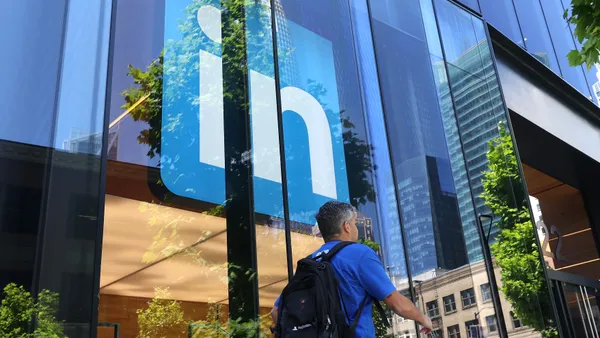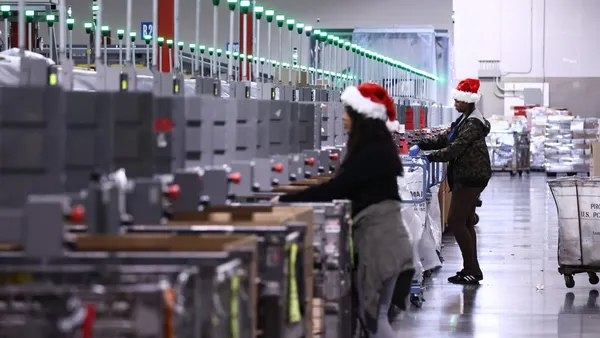Dive Brief:
- The divide between executives and staff over flexible work still has not been bridged entering the final months of 2021, creating two competing visions of the office's future, according to a recent multinational survey of executives and employees by Slack-owned think tank Future Forum.
- Future Forum's survey of more than 10,000 knowledge workers in the U.S., U.K., Australia, France, Germany and Japan found 76% did not want to return to office work full time. However, 68% of executive respondents wanted to work in the office all or most of the time, and 59% of this contingent said their companies planned to adopt policies requiring employees to return to the office for most or all of the workweek.
- Most executives in the survey said they were designing their post-pandemic work policies with little to no direct input from employees, a finding that should “raise alarm,” Future Forum said. The divide is also significant given that executives reported higher job satisfaction than non-executives while fewer than half of employee respondents said executives were being transparent about post-pandemic remote work policies.
Dive Insight:
By now, the narrative of employees vs. management when it comes to work flexibility is well-established in the HR industry. Neither side is a monolith, but research from the past year indicates lines have been drawn.
Future Forum's findings echo those of other firms. In April, Prudential and Morning Consult found that 68% of U.S workers preferred a hybrid workplace model of post-pandemic work, while 87% said they wanted to continue to work remotely at least one day per week.
On the opposite side of the spectrum, 67% of supervisors in a Society for Human Resource Management survey said they considered remote workers more replaceable than on-site counterparts. Sixty-two percent said they believed full-time work was detrimental to employees' career objectives and 72% preferred to have all subordinates working in an office.
How employers go about bridging the divide may depend heavily upon their organizational cultures and ability to adapt workflows to remote or hybrid ways of working, sources previously told HR Dive. There are a number of considerations for HR teams, ranging from networking and team-building needs to compliance questions to real estate costs.
Whatever the case, flexible work is driving real change in workplaces across the U.S., and it has even changed the shape of entire cities and regions. One particular notable example is the San Francisco Bay Area, where an exodus of technology workers is leaving behind empty apartments and raising home prices in other regions. The movement of talent across state and international lines also raises compensation questions, though some HR executives are experimenting with salary portability and similar concepts as their workforces change.
Employers may also look to the example of larger companies that have altered their return-to-work plans in light of the delta variant. Earlier this month, Amazon CEO Andy Jassy said the company would allow team leaders to set their own combinations of in-office and remote work moving forward, rather than setting a company-wide baseline.












